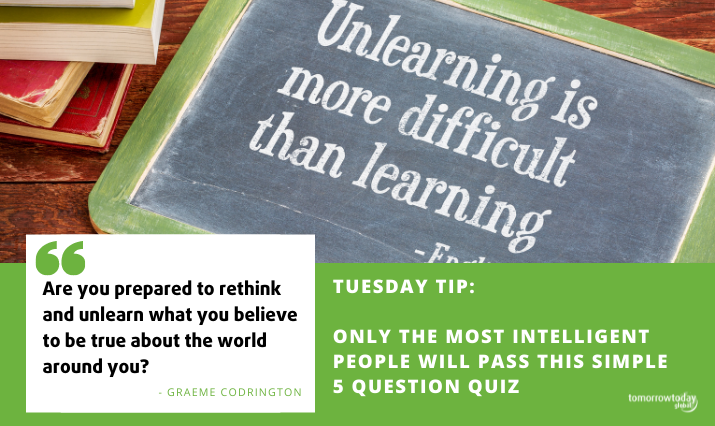In 1999, two psychologists published a fairly modest article in the Journal of Personality and Social Psychology (Vol 77 No 6), detailing the results of four studies, where the authors “found that participants scoring in the bottom quartile on tests of humour, grammar, and logic grossly overestimated their test performance and ability”.
It has become one of the most famous psychological models since then, named after the authors David Dunning and Justin Kruger. The ‘Dunning-Kruger effect’ is the label now used for a type of cognitive bias that causes people to overestimate their knowledge or ability, particularly in areas with which they have little to no experience.
Here’s a simple test that can help you understand the Dunning-Kruger effect. For each of the following topics, rate your knowledge of the topic in relation to other people: 1 being ‘much less than other people’, 5 being ‘about the same as most people’, and 10 being ‘much more than other people’:
- What type of cancer you’re most likely to get from misusing a microwave oven
- Why English became the official language of the United States of America
- How many years it takes chewing gum to digest in your stomach if you swallow it
- Why you shouldn’t touch baby birds that have fallen out of a nest
- What type of tree bananas grow on
Remember, you’re rating your knowledge IN RELATION to other people, not whether you actually know the specific answers or not. Now total your score.
I’m sure you guessed there was some trick somewhere. And if you did, you’re right. The best score for this test is actually zero, because every one of the topics is based on incorrect information:
- You can’t get cancer from a microwave, as they use non-ionizing radiation
- The USA does not have an official language
- Chewing gum does not digest and is passed through your system in a matter of hours or a few days
- Birds have a very limited sense of smell, and will not reject a baby bird if you touch it
- Bananas do not grow in trees or bushes; they are the seeds/fruit of a herb (that just happens to look like a tree)
Dunning and Kruger’s study used tests like this one to assess the confidence people had in their abilities. The more confident people are in what they already know and can do, the more likely they are to not know as much as they think they do.
Adam Grant has written a brilliant book, “Think Again” (2020) that unpacks this issue in detail, and we highly recommend it. He argues that it is not our ability to learn new information or to remember what we already know that marks true intelligence (this is what school mainly tests, and the world mainly rewards as ‘intelligence’). Instead, he believes that it is our ability to rethink, unlearn and be prepared to ’think again’ that should be the true mark of real intelligence.
We agree.
How do you approach the world – especially one that is changing as quickly and unexpectedly as ours is right now? Are you prepared to rethink and unlearn what you believe to be true about the world around you?
We’re not saying that everything you believe is wrong. Nor are we saying that there is no truth to be found. What we are saying is that you have to be a very, very brave person to say that everything you currently believe is definitely completely true, accurate and correct.
That would be remarkable. (Don’t forget that the first rule of the Dunning-Kruger club is that you don’t know you’re part of the Dunning-Kruger club – think about that statement: it’s more true – and funnier – than it first appears.)
Today’s Tuesday Tip is to have more humility, improve your ability to ask better questions (of others and yourself), test your beliefs, favour doubt over certainty, complexity over simplicity and curiosity over closure, and seek out your own blind spots.
These are brilliant starting points for developing your ability to thrive in the midst of all the change we’re living through now. (Oh, and read Adam Grant’s book – you’ll see the inspiration for this Tuesday Tip in chapter 2).
About the author of today’s Tuesday Tip – Graeme Codrington
Graeme Codrington is a futurist, scenario planner and speaker, who loves helping people ’think again’ about the future.


